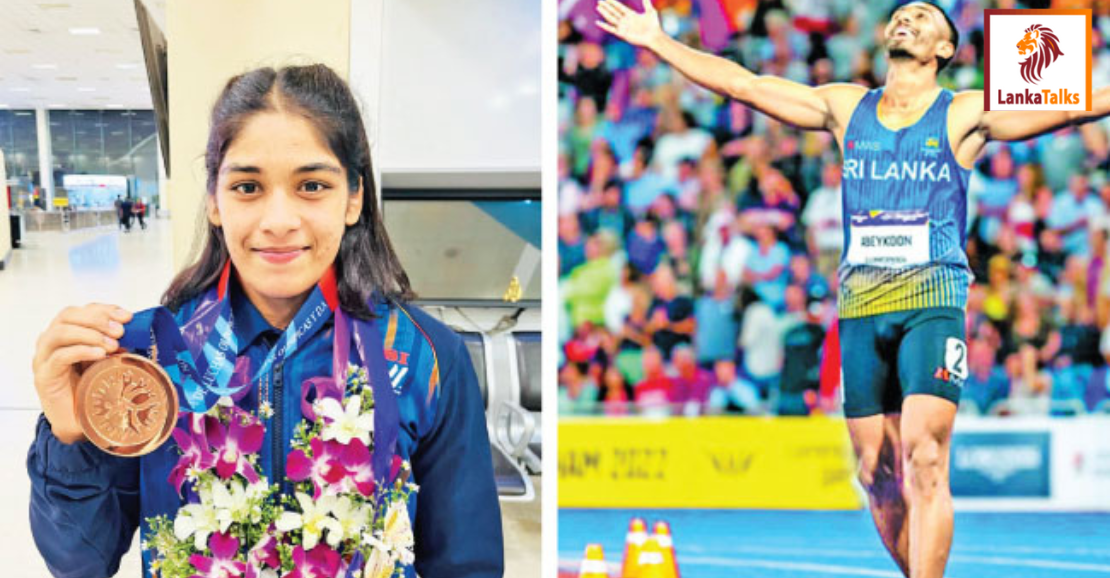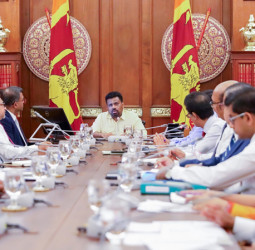The 2026 Commonwealth Games, set to be held in Glasgow, will mark a significant shift in the structure of the event, with a reduced number of sports. From 20 sports at Birmingham 2022, Glasgow 2026 will host just 10, with prominent omissions such as wrestling, cricket, badminton, table tennis, and hockey. This downsized format presents both challenges and opportunities for competing nations. For Sri Lanka, a country with a rich history in the Commonwealth Games, the reduction of sports, particularly the axing of wrestling, will have specific implications for their medal prospects and overall performance.
Sri Lanka has a storied history at the Commonwealth Games, having participated in all but three editions since its first appearance in 1938. Over the years, Sri Lankan athletes have brought home 24 medals: 4 gold, 9 silver, and 11 bronze, with notable performances in sports such as boxing, athletics, weightlifting, and shooting. However, the country has experienced periods of inconsistency, including a 44-year medal drought from 1950 to 1994.
At recent games, Sri Lanka has managed to maintain a presence on the medal tally. In 2018 at the Gold Coast, Sri Lankan athletes secured six medals (one silver and five bronze), and in Birmingham 2022, the country won four medals (one silver and three bronze). Despite this, Sri Lanka’s historical rankings remain modest, with the nation placed 27th in the all-time Commonwealth Games medal table.
The exclusion of wrestling from the Commonwealth Games roster in 2026 is a significant blow for Sri Lanka, particularly after the historic achievement in Birmingham 2022. Nethmi Ahinsa Fernando Poruthotage made headlines by securing the country’s first-ever medal in wrestling, a bronze in the women’s freestyle 57kg category.
With wrestling excluded from Glasgow 2026, Sri Lanka loses a key sport where the country had made recent inroads. Wrestling’s absence means Sri Lanka’s burgeoning hopes in this discipline will have to be put on hold for future competitions outside the Commonwealth Games framework. This development may also hinder the momentum of developing future wrestling talents, as there is now less international exposure and fewer opportunities to compete on a prestigious global stage.
Although wrestling is no longer part of the Commonwealth Games, Sri Lanka retains its historical strengths in sports like boxing, weightlifting, and athletics, which will continue to feature in Glasgow 2026. These sports have traditionally been the country’s most successful disciplines at the Commonwealth Games.
Boxing
Sri Lanka has a long and proud tradition in boxing, dating back to Barney Henricus’ gold medal in the featherweight category at the 1938 Sydney Games. Over the decades, Sri Lankan boxers have consistently contributed to the nation’s medal tally, with recent successes including Anusha Kodituwakku’s bronze in 2018. The continued inclusion of boxing in the 2026 programme presents an opportunity for Sri Lanka to maintain its competitive edge and add to its medal count.
Weightlifting
Sri Lanka’s weightlifters have been among the country’s most consistent performers at the Commonwealth Games. Chinthana Vidanage’s gold in 2006 in Melbourne remains a standout moment, while athletes like Sudesh Peiris (silver in 2014) and Indika Dissanayake (silver in 2018) have kept the nation competitive. Weightlifting is included in Glasgow 2026, and with Sri Lanka’s strong legacy, there is every possibility of further success in this sport.
Athletics
Historically, athletics has provided Sri Lanka with some of its most iconic Commonwealth Games moments, including Duncan White’s gold in the 440-yard hurdles in 1950. Although athletics has not been as fruitful in recent years, Sri Lanka remains competitive in events like sprints and field events. The most recent example was Yupun Abeykoon’s bronze in the men’s 100 metres at Birmingham 2022, a performance that bolstered the nation’s athletic credentials. With athletics remaining on the 2026 agenda, Sri Lanka can focus on grooming athletes for medal contention.
In addition to wrestling, several other sports where Sri Lanka may have had potential for future success are excluded from Glasgow 2026. Cricket, badminton, and table tennis are all absent from the programme. Although Sri Lanka’s Commonwealth Games record in these sports is limited, their exclusion narrows the scope of competition and further limits the opportunities for athletes to compete at the highest level.
While Sri Lanka has not won medals in badminton or table tennis at the Commonwealth Games, these are popular sports within the country, and their exclusion removes potential growth areas for future generations of athletes.
Although shooting has been excluded since Birmingham 2022, its absence continues to affect Sri Lanka’s prospects. Historically, Sri Lanka had great success in shooting, with gold medals in the 1994 women’s air rifle pairs event. The exclusion of shooting in Glasgow 2026 further diminishes a sport where Sri Lanka has historically excelled.
With a more focussed and limited sporting programme at the Commonwealth Games, Sri Lanka may need to re-strategise and concentrate its resources on sports where it has demonstrated historical strength and future potential. The nation’s best chances for medals will likely lie in athletics, boxing, and weightlifting. This shift in focus could lead to more targeted investment in these areas, enabling the country to maximise its chances of success in Glasgow.
Moreover, the Commonwealth Games Federation’s decision to retain para-sports, including para-athletics and para-swimming, opens up further opportunities for Sri Lanka to compete and potentially win medals in these disciplines, as the country has increasingly embraced para-sports in recent years.
The reduction of sports at the 2026 Commonwealth Games in Glasgow presents significant implications for Sri Lanka. However, with boxing, weightlifting, and athletics still part of the programme, Sri Lanka can continue to focus on its traditional strengths. By reorienting its priorities and providing targeted support to athletes in these core sports, Sri Lanka has the potential to continue its proud Commonwealth Games legacy, albeit in a more limited capacity.
Source:Daily News



 Mathuri
Mathuri



